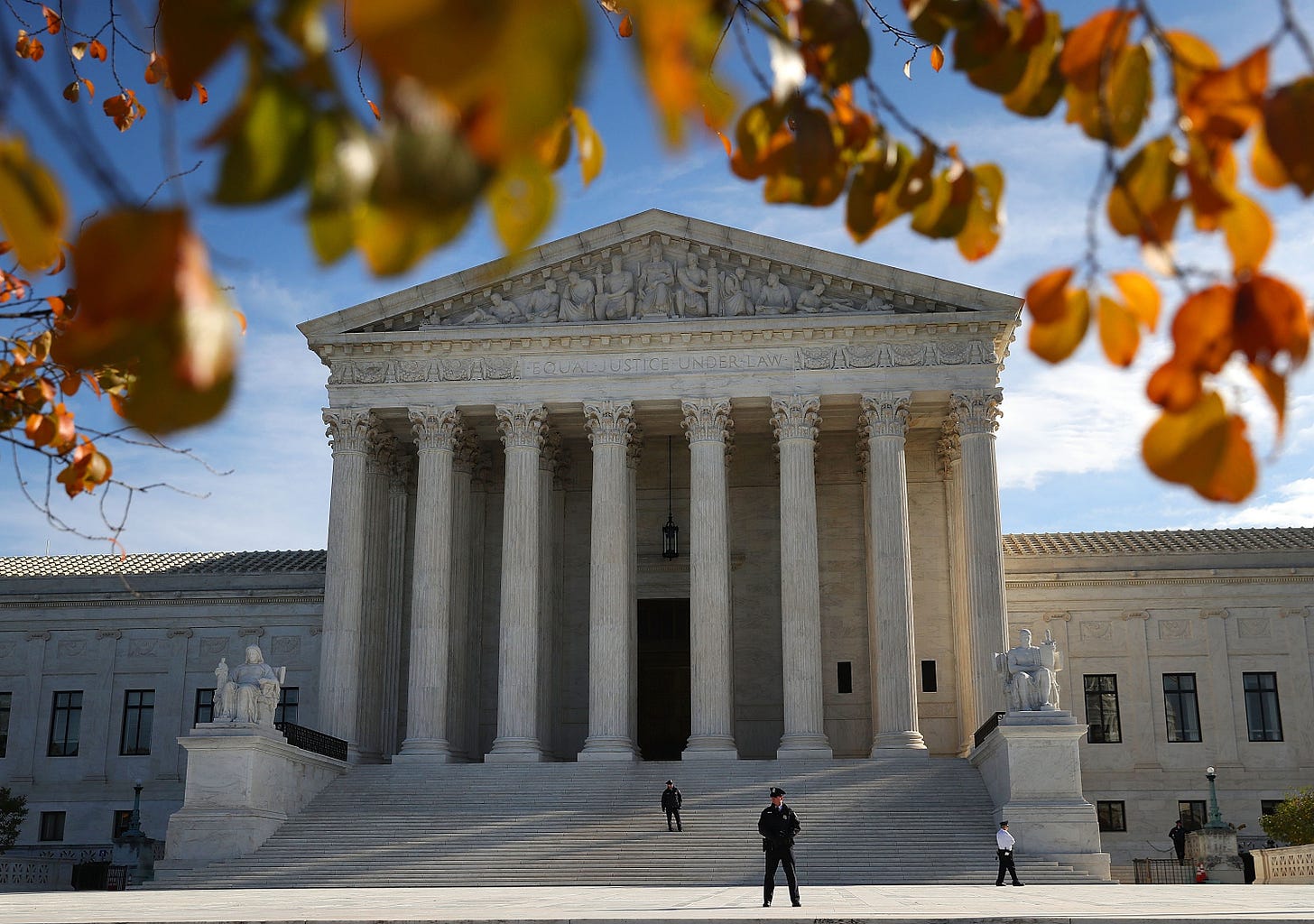How the Supreme Court Struck a Blow Against the Imperial Presidency
Timbs v. Indiana was a setback for greedy local governments. But it sent a message to the federal government, too.
On Wednesday, a spry and fully engaged Justice Ruth Bader Ginsburg—her second day back on the bench after cancer surgery—delivered the court’s unanimous decision in Timbs v. Indiana, a case that’s ostensibly about states’ ability to impose large fines and seize personal property.
As a practical matter, what the decision means is that local governments can no longer use civil asset forfeiture laws—which allow the police to seize, keep, and/or sell property allegedly involved in a crime—as a way to raise money. That’s good news for the plaintiff in the case, who lost his $42,000 vehicle after an arrest for selling a few hundred dollars’ worth of heroin on the theory that the car was used in the crime.
More broadly, the case is meaningful because—in an era of an increasingly imperial presidency and weakened Congress—the Supreme Court was unanimous in expanding the scope of an individual right under the Constitution.
Under the Eighth Amendment, “[e]xcessive bail shall not be required, nor excessive fines imposed, nor cruel and unusual punishments inflicted.” The ban on cruel and unusual punishments is a familiar one (although notably, it has not been construed to prohibit executions). Less well-known is the Excessive Fines Clause, which is similarly designed to confine—in the Supreme Court’s words—“the power of those entrusted with the criminal-law function of government.” It does this by “limit[ing] the government’s power to extract payments, whether in cash or in kind, as punishment for some offense.”
In her written opinion, Justice Ginsburg traces this language back to the Magna Carta itself—the list of fundamental principles that English barons forced King John to agree to back in 1215—as requiring “that economic sanctions be proportioned to the wrong” and not be imposed in such a way as to deprive someone “of his livelihood.”
“Following the Civil War,” she adds, “Southern States enacted Black Codes to subjugate newly freed slaves and maintain the prewar racial hierarchy” by imposing “draconian fines for violating broad proscriptions on ‘vagrancy’ and other dubious offenses.” If formerly enslaved people could not pay, “States often demanded involuntary labor instead.”
Vile? Yes.
Here’s the constitutional rub, however: When the Bill of Rights was ratified in 1791, it applied only to the federal government. Today, it’s hard to imagine that, for more than a century, things like the First Amendment’s free speech rights and the Fourth Amendment’s freedom from arbitrary searches of a home by the police did not fetter the states.
Eventually, the Supreme Court began to fix this blind spot by “incorporating” parts of the Bill of Rights into the 14th Amendment, which by its terms expressly binds the states. The 14th Amendment provides that “nor shall any State deprive any person of life, liberty, or property, without due process of law.” The theory behind incorporation is that the Bill of Rights’ provisions are part and parcel of the meaning of individual “liberty,” which the Constitution protects from arbitrary government intrusion.
The court did not incorporate everything at once, however. It has done so piecemeal.
In Timbs, Indiana thus argued that the Excessive Fines Clause had not yet been applied to the states, and that it cannot be incorporated through the 14th Amendment for purposes of civil forfeitures of property.
The court disagreed. “In short, the historical and logical case for concluding that the 14th Amendment incorporates the Excessive Fines Clause is overwhelming,” Ginsburg wrote. “Protection against excessive punitive economic sanctions secured by the Clause is, to repeat, both fundamental to our scheme of ordered liberty and deeply rooted in this Nation’s history or tradition.”
Expanding the scope of the Bill of Rights is traditionally a “liberal” or “progressive” thing to do. Yet this decision was unanimous. And every American should take heart. Under our constitutional structure, no king has power over his “subjects.” The dynamic is utterly reversed. The “subjects”—the people—are the ones who hold the power over those who hold public office.
That includes the president of the United States, folks.
The Timbs decision is telltale sign that this Supreme Court understands the foundational principle of American democracy that “We the People” are our own bosses—one that’s under siege right now in the halls of the executive and legislative branches of government.




